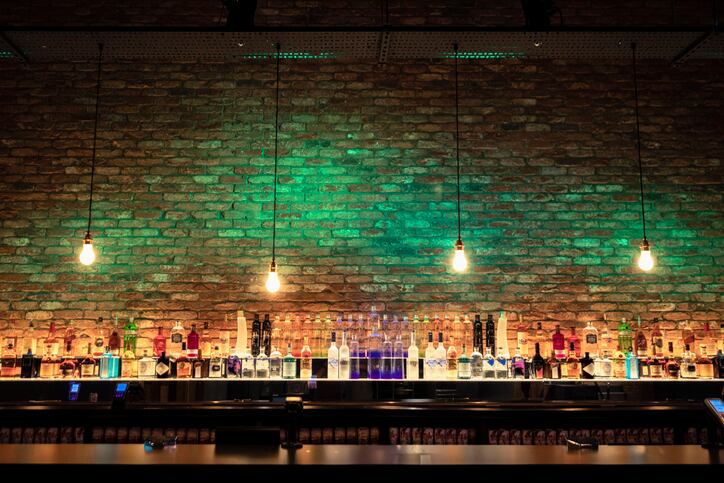COVID-19 restrictions and lockdowns hit hard in 2020. For the spirits sector, the contrast was clear between on-trade and off-trade: but the dynamics varied widely between markets.
On-trade sales plummet
In 2020, the turnover of European spirits producers declined by -8.9% in EU+ (EU27, UK, Norway, Switzerland), while the sector’s overall economic contribution in Gross Value Added (GVA) fell by almost one quarter (-24%).
The collapse of the on-trade business in bars and restaurants, the complete fall off in visitor numbers at distilleries and other major tourist attractions, and the sharp declines in airport sales had an unprecedented impact (the European travel retail sector, for example, reported plummeting sales in airports and duty-free shops, caused by a 70% decrease in passenger traffic in 2020 compared to 2019).
On-trade closures had a domino effect on the entire production and supply chain: not only leading to an overall decline in production and the sale of spirits, but also the loss of employment for 320,000 people in the hospitality sector.
The catering sector, in particular, was hard hit, notes the report: ”The catering industry lost half of its spirits-related GVA and employment. Even though consumers switched from on- to off-premise consumption, the lucrative sales margins were lost.”
North-South divide
The effect of pandemic restrictions and lockdowns, however, was very different between countries.
“Quite a significant north-south divide becomes obvious: Consumers in southern Europe (especially Spain, Greece, Portugal, Cyprus and Malta) cut spirits purchases by almost a third while consumers in Norway and Sweden even bought about 20% more.
“It must be noted, though, that cross-border shopping which accounted for a considerable share of spirits consumption in Scandinavia, became virtually impossible during the pandemic. Hence, spirits consumption may have remained relatively unchanged in Norway and Sweden between 2019 and 2020. Former cross-border shopping now just shows up in domestic sales statistics.”
An analysis of the off-trade and on-trade markets can help explain the differences. Pre-pandemic, for example, the on-premise was relatively insignificant to spirits sales in the Baltics and Scandinavia. “Hence, the loss in terms of spirits sales was not too big there and was easily compensated by increased off-premise sales,” notes the report.
In southern Europe, however, on-premise closures meant much larger decreases in terms of overall sales; and they were not compensated by off-premise sales.
In certain European countries such as Germany, Slovakia, Czech Republic, Malta and Portugal, even off-trade sales declined. In southern Europe (notably Spain, Greece, Portugal, Cyprus and Malta) consumers cut their spirit purchases by almost a third.
Working towards a recovery
“The Covid crisis did not spare the spirits sector,” noted Ulrich Adam, Director General of spiritsEUROPE.
“On-trade closures had a domino effect on the entire production and supply chain. The report shows that they did not just lead to an overall decline in the production and sales of spirits drinks, but also saw a loss of employment for 320,000 people in the hospitality sector which lost more than one quarter of their employees within one year.
“This poses a difficult challenge in the coming years as governments will need to continue to support the recovery of this important sector that offers stable employment for many people.
“The crisis hit all players across the whole spirits supply chain hard. The spirits sector is made up of a myriad of small distillers. We should keep in mind that they have been the ones suffering the most in this situation. What Europe’s distillers and our value chain partners need now is structural support and a favorable policy environment to become once again an engine for jobs and growth in rural areas."



